Welcome to our free classical music site

Do you write about classical music? Are you a blogger? Want to team up with Classical Connect? Send us a message, let's talk!

Do you write about classical music? Are you a blogger? Want to team up with Classical Connect? Send us a message, let's talk!
This Week in Classical Music: March 22, 2021. Bartók and much more. Béla Bartók’s 140th birthday is on March 25th. Bartók was one of the most brilliant composers of the 20th century,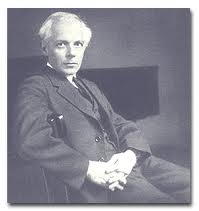 and we feel that these days he is not being played as often as he should be. Maybe it’s a temporary problem: even though his music is tonal in general terms, it may be too pungent for the Covid era. We’ve written about Bartók many times, for example here, here and here. A much more difficult, but also superb composer was born on March 26th of 1925: Pierre Boulez. There has been much public debating about the music of Boulez and other rigorously atonal and serialist composers such as Charles Wuorinen and Milton Babbitt. The young American composer and conductor, Matthew Aucoin wrote a scathing article in the NY Review of Books called Sound and Fury (very much worth reading). William Bolcom, who is 82, responded gently in Remembering Boulez. This debate is not going away.
and we feel that these days he is not being played as often as he should be. Maybe it’s a temporary problem: even though his music is tonal in general terms, it may be too pungent for the Covid era. We’ve written about Bartók many times, for example here, here and here. A much more difficult, but also superb composer was born on March 26th of 1925: Pierre Boulez. There has been much public debating about the music of Boulez and other rigorously atonal and serialist composers such as Charles Wuorinen and Milton Babbitt. The young American composer and conductor, Matthew Aucoin wrote a scathing article in the NY Review of Books called Sound and Fury (very much worth reading). William Bolcom, who is 82, responded gently in Remembering Boulez. This debate is not going away.
A very different composer, Johann Adolph Hasse was born on March 25th of 1699 near Hamburg. A German, he was instrumental in developing the Italian Opera Seria. Hasse stands as one of the great opera composer of the early 18th century, on par with Alessandro Scarlatti and Antonio Caldara of the generation before him, and George Frideric Handel, Nicola Porpora, Antionio Vivaldi and Leonardo Vinci, with whom he competed directly. Here’s a lovely aria from Hasse’s 1742 opera Didona Abbandonata on the libretto of his friend Metastasio. The countertenor is Valer Barna-Sabadus. Hofkapelle München is conducted by Michael Hofstetter.
Franz Schreker is another opera composer who was very popular during his lifetime but who disappeared practically without a trace soon after. Here is what we’ve written about him a couple years ago. And that year, as this one, the pianist Egon Petri had his anniversary during the same week. Like Bartók, he was born in 1881 and would be 140 on March 23rd.
Speaking of pianists: Byron Janis will turn 92 on March 24th. At the age of eight he became Vladimir Horowitz’s very first pupil. Janis played his debut concert at the Carnegie Hall in 1948 and instantly became one of the stars of his generation; he performed with all major orchestras and played at many major halls worldwide. In 1960, two years after Van Cliburn had won the first Tchaikovsky competition, Janis toured the Soviet Union with spectacular success. In 1973 he developed arthritis which brought his brilliant career to a halt. Here’s Byron Janis playing Rachmaninov’s Prelude in E-Flat Major, Op. 23, No. 6
And then there are two моrе eminent pianists, Wilhelm Backhaus and Rudolf Serkin. Backhaus was born on March 26th of 1884 in Leipzig, Serkin – on March 28th of 1903 in Eger, a town in Bohemia now called Cheb. Both immensely talented, both great interpreters of the music of Beethoven, both native German speakers, both spent a lot of time in the US, but it’s hard to imagine more different biographies. Backhaus was close to the Nazis and knew Hitler personally, though eventually he emigrated from Nazi Germany to Switzerland. Serkin, of Russian-Jewish decent, lived in Vienna and then in Berlin, but after the rise of Nazism had to flee Germany first to Switzerland then to the US.
Last but not least, Mstislav Rostropovich. The great cellist was born on March 27th of 1927. Permalink
This Week in Classical Music: March 15, 2021. Bach and more. We encounter this problem several times a year: a towering figure was born the week we’re covering; we feel that it would be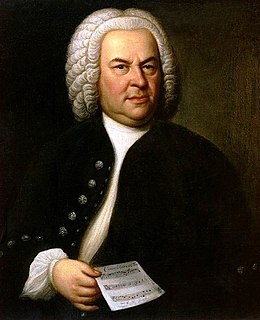 impossible not to write about him (it’s invariably “him”) and in doing so we miss all other very interesting musicians who were also born around this time. Johann Sebastian Bach’s birthday is on March 21st (he was born in 1685). Bach wrote a cantata a week for several years in a row; we feel that we could write an entry a week for several years, covering his life and music. But we’re trying to achieve a modicum of balance, so at the moment we’ll just play the very first cantata Bach composed as Thomaskantor in Leipzig in 1725 (fortunately, Bach was in the repertoire of other musicians we celebrate today). The cantata Wie schön leuchtet der Morgenstern (How beautifully the morning star shines) has the BWV number of 1. Of course, it is not his first opus: Bach was 40 by then and had written a lot of music during his years in Weimar and Köthen (for example, the first volume of The Well-Tempered Clavier was composed in 1722). So here’s Cantata BWV 1, performed by the Bach-Ensemble under the direction of Helmuth Rilling.
impossible not to write about him (it’s invariably “him”) and in doing so we miss all other very interesting musicians who were also born around this time. Johann Sebastian Bach’s birthday is on March 21st (he was born in 1685). Bach wrote a cantata a week for several years in a row; we feel that we could write an entry a week for several years, covering his life and music. But we’re trying to achieve a modicum of balance, so at the moment we’ll just play the very first cantata Bach composed as Thomaskantor in Leipzig in 1725 (fortunately, Bach was in the repertoire of other musicians we celebrate today). The cantata Wie schön leuchtet der Morgenstern (How beautifully the morning star shines) has the BWV number of 1. Of course, it is not his first opus: Bach was 40 by then and had written a lot of music during his years in Weimar and Köthen (for example, the first volume of The Well-Tempered Clavier was composed in 1722). So here’s Cantata BWV 1, performed by the Bach-Ensemble under the direction of Helmuth Rilling.
March 21st also marks the 100th anniversary of Arthur Grumiaux, one of the greatest violinists of the 20th century. He was born in Villers-Perwin, not far from Charleroi, Belgium. At the age of 12 he went to the Brussels Conservatory. He made his debut right before the Germans invaded the country early in WWII. During the occupation he didn’t perform publicly; instead, he played in a private quartet. He resumed his career once the war was over, debuting in London in 1945 and later performing in the US. Grumiaux had a wide repertoire; his Mozart and Beethoven were highly praised; in Mozart he was often accompanied by Clara Haskil. He was especially good in Bach’s unaccompanied violin sonatas. Here, to celebrate both Bach and Grumiaux, is Bach’s Violin Sonata no. 1. The recording was made in Berlin in November of 1960.
Also on March 21st, in 1914, Paul Tortelier, a wonderful French cellist was born. His Bach was masterful: here is Bach Cello Suite No 2 in D minor, performed by Tortelier in 1982.
Finally, Sviatoslav Richter was born on March 20th of 1915. He was by far the most celebrated Soviet pianist with an incredibly broad repertoire. He was enigmatic, brooding, and full of idiosyncrasies. He was also gay, which made his position in the Soviet society especially uncomfortable. And he was a pianist of genius. His Schumann, Prokofiev, Rachmaninov, Beethoven were incomparable. And so were his interpretations of dozens of other composers: he once said that he could play 80 different solo programs. Here is his Bach: French Overture in B Minor. It was made late in Richter’s life, in 1991.Permalink
This Week in Classical Music: March 8, 2021. Catching up. Last week, as we wrote about Eboracum, a British Baroque group, we missed several important anniversaries, such as those of Frédéric Chopin, Antonio Vivaldi and Maurice Ravel. On March 4th Bernard Haitink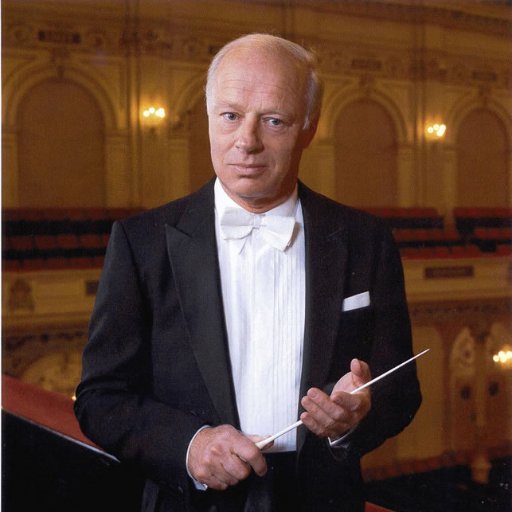 celebrated his 92nd birthday and we wish him many happy returns. And March 6th was the birthday of the wonderful New Zealand soprano Kiri Te Kanawa and the late conductor Lorin Maazel.
celebrated his 92nd birthday and we wish him many happy returns. And March 6th was the birthday of the wonderful New Zealand soprano Kiri Te Kanawa and the late conductor Lorin Maazel.
This week is also full of memorable dates. Carl Philipp Emanuel Bach was born on this day in 1714, and so was Carlo Gesualdo, in 1566. Gesualdo’s biography is so unusual that it is almost impossible not to get into the sordid details, which we’ve done in the past, for example here and here. Josef Mysliveček, a somewhat underappreciated Czech composer, was born on March 9th of 1737. Mysliveček was friends with the Mozarts, both father and son (they fell out eventually after Mysliveček couldn’t keep his promise to get a commission for Wolfgang from Teatro San Carlo in Naples). Mozart even arranged Mysliveček’s aria Il caro mio bene for the voice and piano (he also used a different text, so Mozart’s version is called Ridente la calma (K152). Here it is, sung by Cecilia Bartoli with András Schiff on the piano.
Arthur Honegger, Hugo Wolf, and Georg Philipp Telemann were also born this week. We’ve complained on more than one occasion about Telemann’s prodigious output: it was uneven, some not of the highest quality. But when Telemann was good, he was very good, it’s just that finding the gems isn’t easy. Here is his whimsical Alster-Ouvertüre, performed by Collegium Musicum 90 conducted under the direction of Simon Standage. The seventh movement, The concert of frogs and crows (it starts at around the 17th minute) is especially funny.
Thomas Arne, who was born on March 12th of 1710, is known these days mostly for one song, Rule, Britannia! This old (and very patriotic) song could not avoid the controversies of our culture. Rule, Britannia! was traditionally performed on the last day of the Proms, with the audience enthusiastically singing along. But of course, in 2020 some people decided that the words of the anthem are too imperialistic for this day and age and so the BBC, which organizes and broadcasts the concert, decided that the orchestral version would be performed. This is exactly what the Soviet authorities did in 1956, during the Thaw, when invoking the name of Stalin became impolitic. But it turned out that in the UK tradition trumps wokeness, and after a backlash in the media and an intervention by the Prime Minister Boris Johnson, the choral part was restated. Because of the Covid restriction there was no audience at the Royal Albert Hall, so instead a small, socially distanced choir performed the song as intended. Thomas Arne was a prolific theater composer, and some of his music is quite good: listen, for example, to this short Cantata from 1755, subtitled Dalia (here). Dame Emma Kirkby is the soprano; London Baroque is conducted by Charles Medlam.Permalink
This Week in Classical Music: March 1, 2021. Eboracum Baroque. How is a small ensemble to survive the calamity of a major pandemic? When even some of the well-established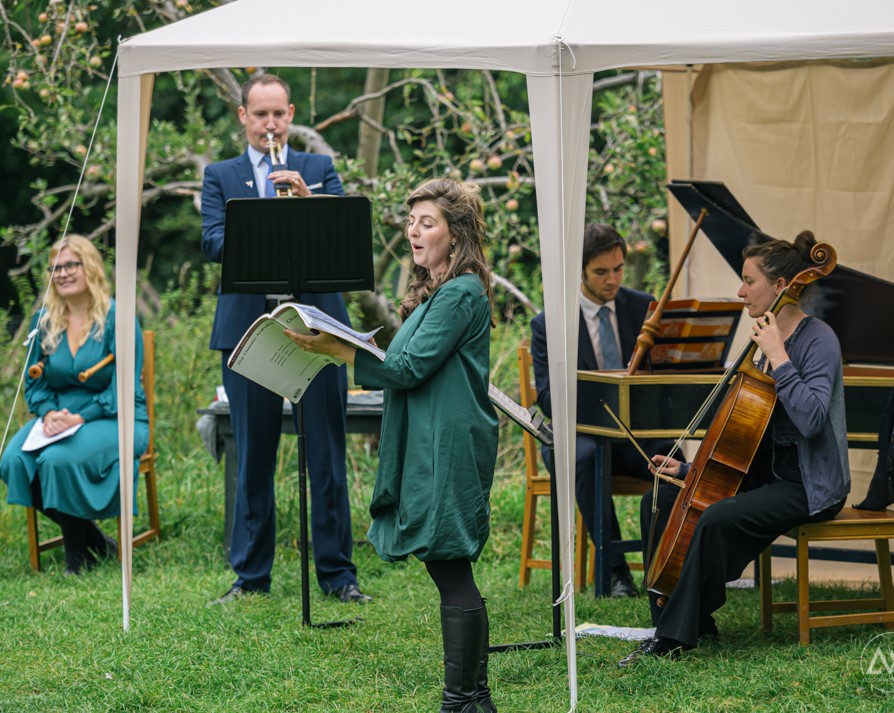 orchestra, like the Met, are suffering, how will the small ensembles and soloists fare without any endowments and little aid available to them? And is there truly a light at the end of the tunnel with the vaccine becoming more available? When are we going to enjoy – and when will musicians be able to perform – live music again? Eboracum Baroqueseems to have fared well, given the circumstances. The unusual name of the ensemble comes from Eboracum, a Roman British city we know as York. Eboracum Baroque was founded in 2012 by Chris Parsons at the University of York and the Royal College of Music as an ensemble of young professional singers and instrumentalists at the start of their classical music careers. Classic FM called them “spectacular.” They have performed across the UK and Europe in prestigious venues and festivals including Senate House, Cambridge; The Temple Church, London and Christuskirche, Hannover. In addition to playing concerts, they’ve given fully staged performances of Purcell’s Dido and Aeneas and Handel’s Acis and Galatea.
orchestra, like the Met, are suffering, how will the small ensembles and soloists fare without any endowments and little aid available to them? And is there truly a light at the end of the tunnel with the vaccine becoming more available? When are we going to enjoy – and when will musicians be able to perform – live music again? Eboracum Baroqueseems to have fared well, given the circumstances. The unusual name of the ensemble comes from Eboracum, a Roman British city we know as York. Eboracum Baroque was founded in 2012 by Chris Parsons at the University of York and the Royal College of Music as an ensemble of young professional singers and instrumentalists at the start of their classical music careers. Classic FM called them “spectacular.” They have performed across the UK and Europe in prestigious venues and festivals including Senate House, Cambridge; The Temple Church, London and Christuskirche, Hannover. In addition to playing concerts, they’ve given fully staged performances of Purcell’s Dido and Aeneas and Handel’s Acis and Galatea.
While Eboracum Baroque performs music from across the Renaissance and Baroque, they specialize in English music from the 17th and 18th century, championing overlooked English composers from the period. In 2015 the ensemble recorded their first CD. It features forgotten music by the English Baroque composer Thomas Tudway (1650-1726) recorded at Wimpole Hall near Cambridge, where Tudway worked from 1714-1726. It was described by The Guardian as “Stylish Choral Singing and playing.”
In 2015 the group went on their first major tour abroad with performances of Handel’s Messiah across Germany, receiving standing ovations from sell-out audiences and encores of the Hallelujah chorus. In 2016 they toured Estonia, with concerts of the Bach Magnificat and Vivaldi Magnificat in Tartu and Tallinn, the latter being broadcast on Estonian National Radio.
Their second CD “Sounds of Suffolk” was released in November 2018 and features forgotten music from 18th century Suffolk including violin sonatas by Joseph Gibbs and music from Ickworth House.
The group runs an active education program which works with schools across the UK. Recent projects have been based around Handel’s Water Music and Vivaldi’s Four Seasons. Eboracum Baroque also works with Terry Deary, the British author of Horrible Histories and other popular children’s books. Performances with Terry include a new narration of Purcell’s King Arthur, The Fairy Queen and the brand-new, original production “The Glorious Georgians” which received 5-star reviews at the Edinburgh Fringe Festival.
During the COVID-19 pandemic, the group has remained active, going entirely online, with themed concerts including, “Above the Stars,” “A Baroque Christmas” and “Fairest Isle,” which currently have 200,000 views on Facebook and YouTube and the Spotlight concerts, which focus on certain instruments in the group. In December of 2020 they recorded an upcoming crowdfunded CD of Handel’s Messiah with distinguished producer Adrian Peacock.
Take a listen: here’s Winter from Vivaldi 's The Four Seasons with the recorder instead of the violin as the soloist; it comes from “Baroque Christmas” performance. And here’s Fairest Isle by Henry Purcell from King Arthur, from the recent “Fairest Isle” concert.
Further details about the ensemble, the upcoming concerts and events can be found at their website: www.eboracumbaroque.co.uk. And we didn’t forget about Chopin, Vivaldi and Ravel: we’ll celebrate them the next week.Permalink
This Week in Classical Music: February 22, 2021. Young Handel. George Frideric Handel was born on February 23rd of 1685 in Halle. We’ve written about this great composer many times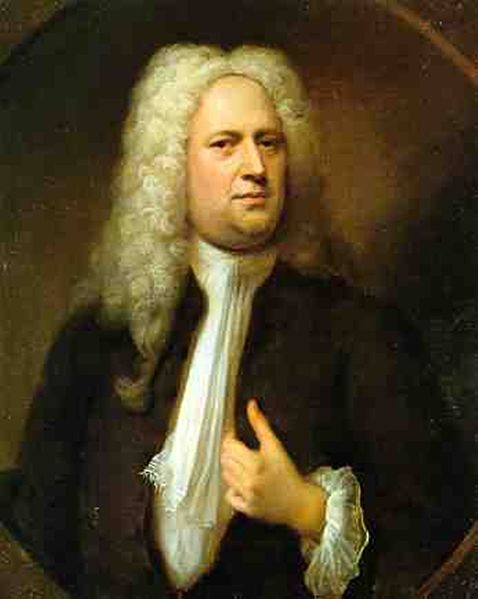 (for example, here and here). We want to come back to his early days in Italy though, as we find the progress of the young Handel quite remarkable even by the standards of major talents. Handel lived in Halle for the first 18 years of his life. From early on it was clear that he was musically gifted; in his teens he played the organ in the main church and composed, but as the only son who lost his father early, he had many responsibilities and couldn’t dedicate himself to music to the extent he wanted. In 1702 Handel visited Berlin, were he probably met with Giovanni Bononcini who was staging operas for the Prussian court. In 1703 Handel moved to Hamburg, hoping for a position at the Oper am Gänsemarkt, then the only municipal opera company in Germany (all other opera theaters were set up by royal courts, of which there were many). Handel was hired as the opera orchestra’s violinist, but later switched to playing the continuo (harpsichord). In 1704 Handel’s first opera, Almira, was staged at the theater and proved to be successful. He composed at least three more operas but the music for them is lost. From the late1690s the Hamburg Opera was dominated by the composer Reinhard Keiser, the author of more than 100 operas. On the one hand, Keiser’s music was influential (Handel quoted him not only in Almira, but in many other operas throughout his life); at the same time, as a junior composer, Handel felt highly constrained.
(for example, here and here). We want to come back to his early days in Italy though, as we find the progress of the young Handel quite remarkable even by the standards of major talents. Handel lived in Halle for the first 18 years of his life. From early on it was clear that he was musically gifted; in his teens he played the organ in the main church and composed, but as the only son who lost his father early, he had many responsibilities and couldn’t dedicate himself to music to the extent he wanted. In 1702 Handel visited Berlin, were he probably met with Giovanni Bononcini who was staging operas for the Prussian court. In 1703 Handel moved to Hamburg, hoping for a position at the Oper am Gänsemarkt, then the only municipal opera company in Germany (all other opera theaters were set up by royal courts, of which there were many). Handel was hired as the opera orchestra’s violinist, but later switched to playing the continuo (harpsichord). In 1704 Handel’s first opera, Almira, was staged at the theater and proved to be successful. He composed at least three more operas but the music for them is lost. From the late1690s the Hamburg Opera was dominated by the composer Reinhard Keiser, the author of more than 100 operas. On the one hand, Keiser’s music was influential (Handel quoted him not only in Almira, but in many other operas throughout his life); at the same time, as a junior composer, Handel felt highly constrained.
In 1706 he met the younger brother of Ferdinando de' Medici, duke of Tuscany, who was visiting Hamburg. The prince showed Handel examples of talian music and invited him to the court. Handel declined the invitation but decided to go to Italy on his own. He left Hamburg late in 1706; we don’t know if he visited Florence, but by 1707 he was in Rome. Almost immediately he found several influential patrons, the cardinals Carlo Colonna, Benedetto Pamphili, who became a good friend, and probably also Cardinal Pietro Ottoboni, about whom we wrote an entry several years back. On the commission of Colonna, Handel composed the setting of Dixit Dominus; it was performed in July of that year (here’s the introductory part of it, Le Concert d'Astrée is conducted by Emmanuelle Haïm). Also in 1707, he composed his first Italian opera, Il trionfo del Tempo e del Disinganno, except that it had to be called (and staged as) an oratorio, as the Pope had banned all opera performances in Rome. The libretto was written by Benedetto Pamphili himself. Later that year Handel joined the household of the Marquess Francesco Maria Ruspoli, a member of the Accademia dell'Arcadia and one of the most important secular patrons in Rome. Ruspoli had a castle in Vignanello, about 60 km north of Rome, and Handel was spending part of the time there. For Ruspoli, Handel was writing one cantata a week, plus some miscellaneous music and motets for the church at Vignanello. At the same time, Handel was working on an opera for Ferdinando de’ Medici, as operas were all the rage in Florence. It was produced there in October of 1707 under the title Vincer se stesso è il maggior vittoria, but we know it as Rodrigo. Here’s the Suite from Rodrigo performed by the Arion Orchestre Baroque under the direction of Barthold Kuijken.
We’ve covered, however briefly, the first year of Handel’s short Italian sojourn. We’ll come back with the rest of it soon.Permalink
This Week in Classical Music: February 15, 2021. Pianists. Several pianists of note were born this week and several more just a couple of days earlier. Some of them left us a rich audio record of their art so we can judge their talent for ourselves, but of the ones who were born in the earlier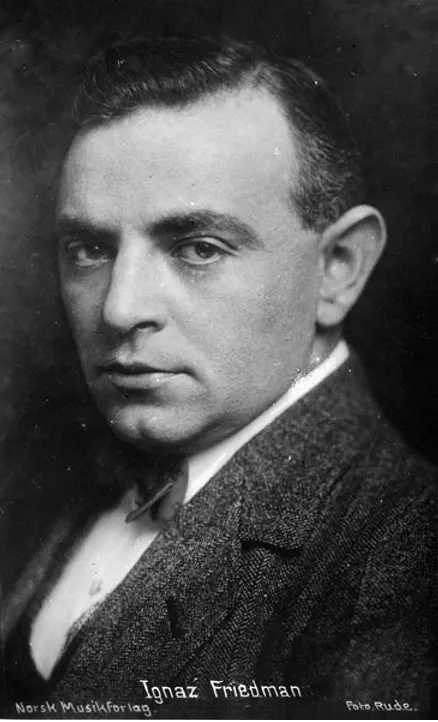 era we know mostly from the effusive descriptions by their contemporaries. Leopold Godowsky and Ignaz Friedman, both Polish Jews, were born on the same day, February 13th, Godowsky in 1870, Friedman in 1882. Godowsky is better remembered these days, partly because of his compositions (especially the piano arrangements), but also because of his pupils, one of whom, Heinrich Neuhaus, continued the legacy through his own numerous pupils, Sviatoslav Richter and Emil Gilels among them. Godowsky’s last acoustic recording was made in 1928, and many of the earlier ones were made on a piano roll, which doesn’t convey the nuances of the performance. Friedman was 12 years younger than Godowsky and could’ve had a much larger recorded legacy as the technology was getting consistently better but, unfortunately, even in his case there are not that many surviving recordings. Friedman was born near Krakow and took his first piano lessons there. He then moved to Leipzig and, in 1901, to Vienna where he studied with Theodor Leschetizky (who also taught Godowsky), eventually serving as his assistant. Friedman played his first public concert in Vienna in 1904; he had a brilliant career in Europe and then in Australia. He gave his last concert in 1943 (Friedman died in Sydney on January 26th of 1948). Vladimir Horowitz used to say that Friedman’s technique was better than his own, but what is most noticeable when one listens to his recordings is the amazingly flexible rhythm and exquisite phrasing, very “romantic” by today’s standards – nobody plays like this these days – but utterly convincing. Here’s Chopin’s Ballade no. 3, recorded sometime around 1940.
era we know mostly from the effusive descriptions by their contemporaries. Leopold Godowsky and Ignaz Friedman, both Polish Jews, were born on the same day, February 13th, Godowsky in 1870, Friedman in 1882. Godowsky is better remembered these days, partly because of his compositions (especially the piano arrangements), but also because of his pupils, one of whom, Heinrich Neuhaus, continued the legacy through his own numerous pupils, Sviatoslav Richter and Emil Gilels among them. Godowsky’s last acoustic recording was made in 1928, and many of the earlier ones were made on a piano roll, which doesn’t convey the nuances of the performance. Friedman was 12 years younger than Godowsky and could’ve had a much larger recorded legacy as the technology was getting consistently better but, unfortunately, even in his case there are not that many surviving recordings. Friedman was born near Krakow and took his first piano lessons there. He then moved to Leipzig and, in 1901, to Vienna where he studied with Theodor Leschetizky (who also taught Godowsky), eventually serving as his assistant. Friedman played his first public concert in Vienna in 1904; he had a brilliant career in Europe and then in Australia. He gave his last concert in 1943 (Friedman died in Sydney on January 26th of 1948). Vladimir Horowitz used to say that Friedman’s technique was better than his own, but what is most noticeable when one listens to his recordings is the amazingly flexible rhythm and exquisite phrasing, very “romantic” by today’s standards – nobody plays like this these days – but utterly convincing. Here’s Chopin’s Ballade no. 3, recorded sometime around 1940.
Alexander Brailowsky was born February 16th of 1896, 14 years after Friedman. Like Godowsky and Friedman, he was Jewish and also born in the Russian Empire (in Kiev, now the capital of the independent Ukraine). And like Friedman and Godowsky, he studied with Leschetizky in Vienna. At the beginning of the Great War the family moved to Switzerland, where Alexander took lessons with Ferruccio Busoni. Brailowsky was the first pianist ever to perform all of Chopin’s piano compositions. In 1938, during his sensational tour of South America he stayed in Buenos-Aires for two months and gave 19 concerts, never playing the same piece twice. Like Ignaz Friedman, Brailowsky loved to play Chopin, probably the influence of their teacher Leschetizky. Here’s a recording of the Nocturne no. 1 in B-Flat Minor, Op. 9, made in 1957.
Nikita Magaloff, who was born on February 21st of 1912 in St.-Petersburg into a noble Georgian family of Maghalashvilis, came from a very different musical tradition than the pianist we’ve mentioned above, but he, as Friedman and Brailowsky (and to a large degree Godowsky), was also a wonderful Chopinist. Magaloffs emigrated from Russia in 1918 and settled in Paris. Nikita studied at the Paris Conservatory with Isidor Philipp and at the age of 17 won a premier prix. He also studied with Sergei Prokofiev, a family friend. In 1939 he moved to Switzerland and lived there for the rest of his life. While Brailowsky was the first pianist to play all of Chopin’s pieces, Magaloff was the first one to record all of them. He died in Vevey on December 26th of 1992. Here’s Magaloff playing Chopin’s Impromptu no. 3 in G-flat major, Op. 51.Permalink